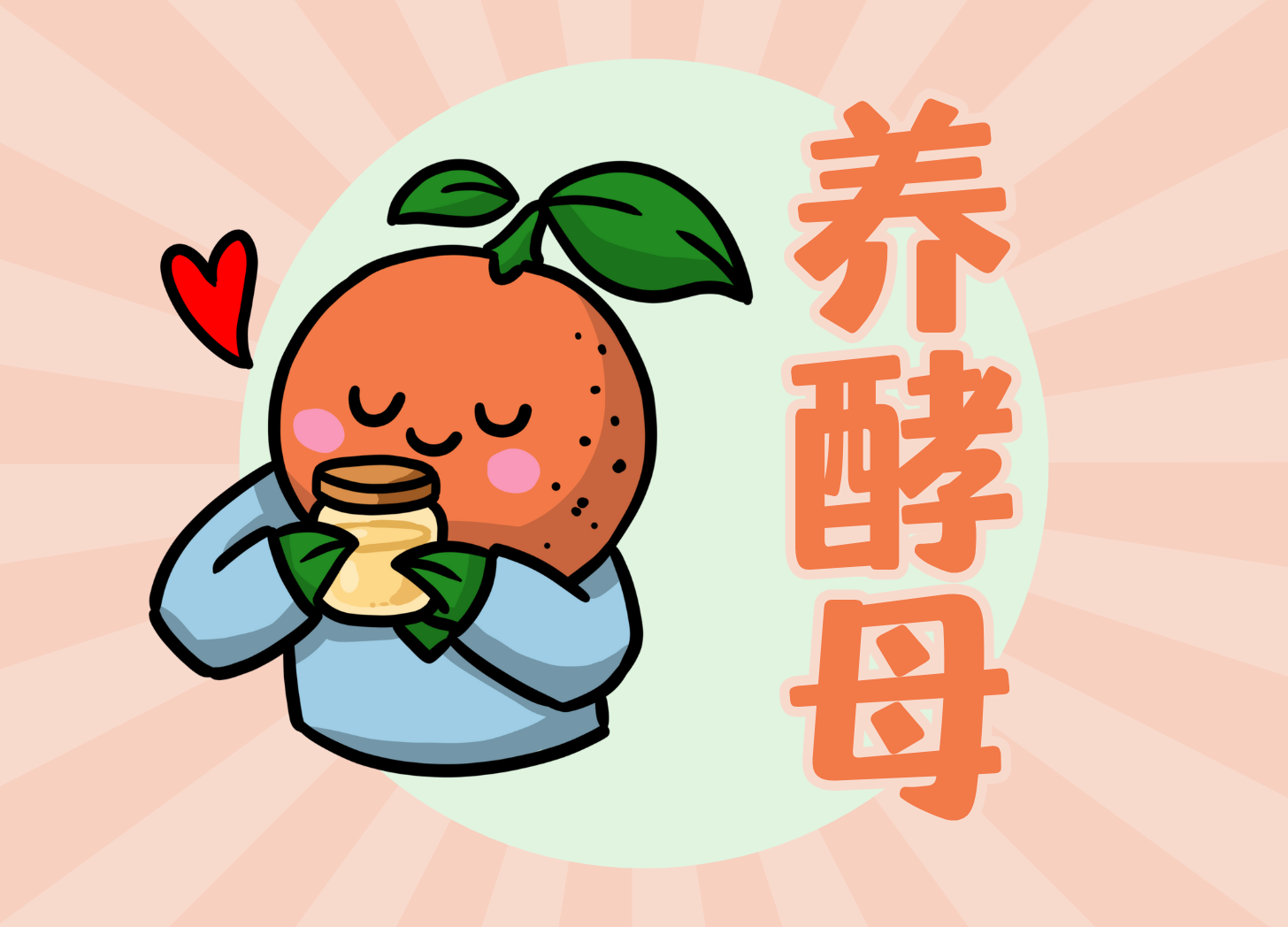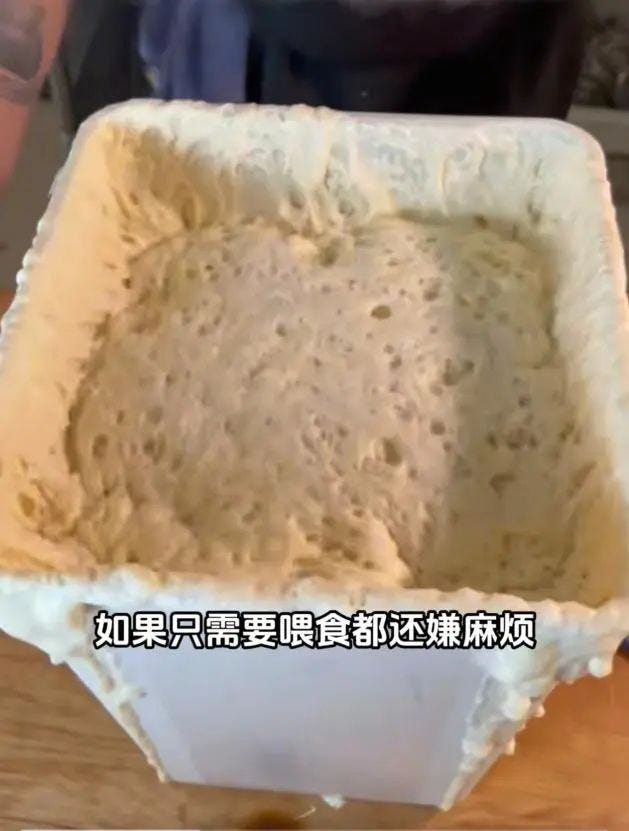Would You Keep Yeast as a Pet?
Feeding It, Caring for It, Talking to It? 🍞
China is a huge country with over a billion people, so it’s not surprising that new trends arise and spread on a much larger scale than in most other countries. Some of these trends are, to say the least, quite strange.
Contrary to what its government often claims, China is an over-capitalistic country—arguably even more so than the West. Life there is heavily centered on studying and working, leaving little room for social interaction. This particularly affects young people, who often feel bored and lonely.
When you’re lonely with no one to talk to, adopting a pet has been shown to bring comfort and companionship. However, being overworked in China doesn’t necessarily mean earning more money, and keeping a cat or a dog is expensive. So young Chinese people have turned to cheaper pet alternatives—and we’re not talking about fish or hamsters, but something much cheaper. The trend this year has been adopting yeast as a pet. Yes, you read that right: yeast, one of the essential ingredients used to make bread.
Let’s dive into this unusual trend!
年轻人开始养酵母当宠物了!”近日,这种现象引发热议。据了解,所谓养酵母,是将酵母装进容器内,控制温度与糖分,定期“喂食”面粉和水,观察其发酵动态。还有的人将这种行为称为“养面蛊”。
酵母 (jiàomǔ): yeast
热议 (rèyì): heated discussion; hot debate
容器 (róngqì): container; vessel
定期 (dìngqī): at regular intervals; regularly; periodically
发酵动态 (fājiào dòngtài): fermentation activity/dynamics
面蛊 (miàngǔ): “flour gu” (a humorous nickname for kept yeast dough, referencing 蛊 gǔ, a type of mythical poisonous insect/parasite raised in a jar in Chinese folklore)
"Young people have started keeping yeast as pets!" Recently, this phenomenon has sparked heated discussion. It is understood that keeping yeast means putting it into a container, controlling the temperature and sugar levels, and regularly "feeding" it with flour and water while observing its fermentation process. Some even refer to this practice as "raising flour gu" (a kind of mystical pet).
有养酵母的博主表示:“养它的理由很简单,好打理又省心,既不拆家也不用遛。”该博主还介绍称,养酵母只需要将面粉和水1:1加入无水无油的容器内,充分搅拌后盖上盖子,静置24小时后,倒掉一半再加入等量的面粉和水。每天重复操作,一周后就可以得到“酵母宝宝”。在这期间,面团会冒泡、变大,甚至会出现怪味,博主称均属于正常现象。
博主 (bózhǔ): blogger (lit. “blog master”)
好打理 (hǎo dǎlǐ): easy to take care of; easy to manage
省心 (shěngxīn): worry-free; saves effort/trouble
遛 (liù): to walk (an animal, especially a dog); to stroll
面团 (miàntuán): dough
冒泡 (màopào): to bubble; to produce bubbles
A blogger who keeps yeast said: "The reason is simple — it’s easy to manage and worry-free. It doesn’t destroy your home and doesn’t need to be taken for walks." The blogger explained that keeping yeast only requires mixing flour and water in a 1:1 ratio in a clean, oil-free container, stirring well, covering with a lid, and letting it sit for 24 hours. After that, half is discarded and the same amount of flour and water is added. Repeating this process daily for a week produces a "yeast baby." During this time, the dough may bubble, expand, and even give off strange smells — all of which, the blogger said, are normal.
4月16日下午,经视直播记者联系上武汉大学城市安全与社会管理研究中心副主任尚重生。尚重生表示,当下年轻人面临一定压力与烦恼,部分人选择养宠物作为情感寄托。宠物在一定程度上充当了解压载体,也成为人们生活中的惦念。“如果说完全没有惦记、牵挂和寄托的话,他找不到生活的意义。”
经视直播记者 (jīngshì zhíbò jìzhě): Jingshi Live reporter (lit. “Economic Vision Live reporter,” the name of a news program)
情感寄托 (qínggǎn jìtuō): emotional support; something to place one’s feelings in
解压载体 (jiěyā zàitǐ): stress-relief outlet; medium to relieve pressure
惦念 (diànniàn): to keep in mind with concern; to think of and miss someone
惦记 (diànjì): to keep thinking about; to be concerned about (often used more casually than 惦念)
牵挂 (qiānguà): to worry about; to be concerned about; to care deeply for someone
On the afternoon of April 16, reporters contacted Shang Zhongsheng, Deputy Director of the Urban Safety and Social Management Research Center at Wuhan University. Shang explained that young people today face various pressures and troubles, and some choose to keep pets as an emotional outlet. Pets, to some extent, serve as a stress reliever and something to care about in daily life. "If a person has nothing to worry about, miss, or devote their feelings to, they may struggle to find meaning in life."
年轻人养宠物种类多样,一方面受社会风潮变化影响,另一方面,选择较为奇特的“宠物”,不仅能降低物质和时间成本,还可能带来一种成就感。“因为他们养东西也可能存在攀比的心理,有一种自我的存在感和成就感。他养的东西越奇怪,别人越没养过,就越有成就感,越有话题的主宰感。”
社会风潮 (shèhuì fēngcháo): social trend; social fad
奇特 (qítè): peculiar; unusual; unique
成本 (chéngběn): cost (of production, investment, or effort)
成就感 (chéngjiùgǎn): sense of achievement; feeling of accomplishment
攀比 (pānbǐ): to compare competitively (often in a negative sense, like showing off or one-upping others)
存在感 (cúnzàigǎn): sense of existence; sense of being noticed/recognized
主宰感 (zhǔzǎi gǎn): sense of control; feeling of dominance
Young people today keep a wide variety of pets. On one hand, this is influenced by changing social trends. On the other hand, choosing unusual "pets" can reduce both financial and time costs, while also providing a sense of accomplishment. "There may also be a sense of competition involved — keeping something unique gives them a sense of existence and achievement. The stranger the pet, the less likely others have raised it, the greater the sense of accomplishment, and the more control they feel over conversations."
What do you think of this trend? Would you keep yeast as a pet? Or maybe something else?
Antoine & Dorota






